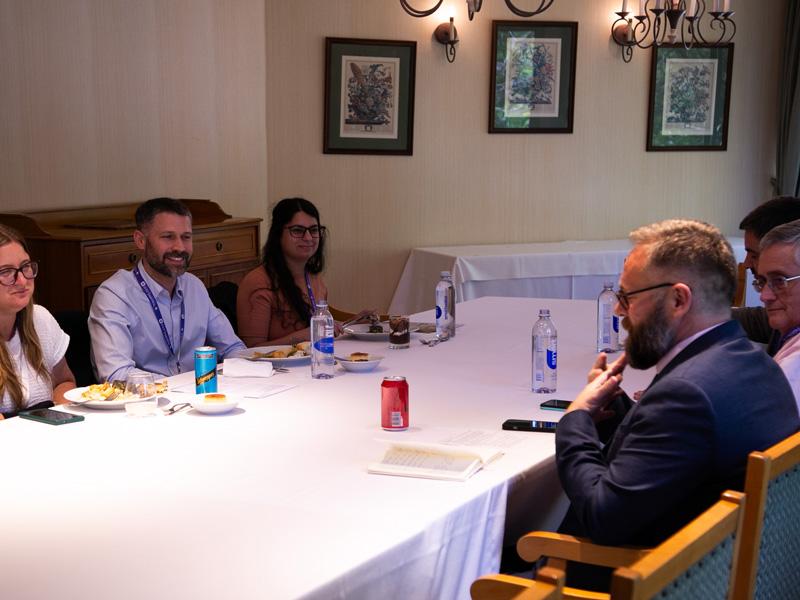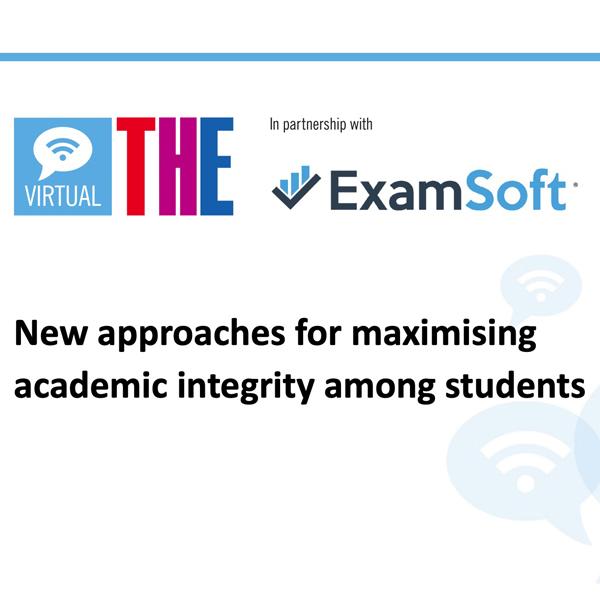
Adapting to AI: balancing innovation and academic integrity in higher education

You may also like
Universities need to recognise AI as a support tool rather than something to fear, said the participants of a round table held in partnership with Turnitin at the 2024 91Ūčūė Latin America Data Forum.
AI tools such as ChatGPT are now capable of generating human-like responses and are widely used by students. Their output ranges from writing emails and essays to formulating strategies on pedagogy. Higher education institutions are grappling with how to regulate AIŌĆÖs use and address the risk of students submitting AI-generated work as their own.
ŌĆ£ItŌĆÖs a tool like fire: you can cook, or you can destroy a house,ŌĆØ said Juan Luis M├®rega, the undersecretary of planning and institutional relations at the National University of Quilmes. ŌĆ£It is clear that we have to adapt to this new reality.ŌĆØ
Roberto Rodriguez, senior account executive at Turnitin, said: ŌĆ£AI is not going to disappear anytime soon and will keep evolving.ŌĆØ Similarly, teachers need to adapt the way they embraced online classrooms during the Covid-19 pandemic, Rodriguez added. They need to ask how they can use AI as an ally in their courses and to design innovative assessments.
Turnitin offers digital tools that enable universities to detect AI-generated content in studentsŌĆÖ work, enabling teachers to plan intervention and academic support to enhance studentsŌĆÖ writing and critical thinking skills.
ŌĆ£As a university, we have to convince our faculty to use ChatGPT in order to transform their classes,ŌĆØ said Mar├Ła Soledad Perfumo, vice-rector of innovation and development at Universidad Cat├│lica de C├│rdoba. ŌĆ£We have to understand when itŌĆÖs useful, what works and what kind of teaching styles are compatible with ChatGPT.ŌĆØ
It is a mistake for universities to only view AI as a tool for academic misconduct, said M├®rega. ŌĆ£It should also be seen as a tool for learning,ŌĆØ he said. The participants agreed that academics need to explore where and when AI could be useful, rather than just focusing on where it might be misused.
Higher education institutions have an important role to play in teaching their students how to use AI tools, the participants said. Students need to know how to construct prompts to generate the correct responses from AI chatbots. ŌĆ£If you donŌĆÖt provide the correct question, you will get the wrong answer,ŌĆØ said M├®rega.
It is important to instil a culture of self-learning in students, Perfumo said: ŌĆ£By understanding the potential and the limitations of the tool, perhaps our teachers will be able to transform their methods, strategies and the way they teach.ŌĆØ
Additionally, institutions should prepare students for a future workplace where they need to be able to use AI tools correctly and appropriately. Institutions have the opportunity to engage with industry not only to find out how businesses are using AI but also to train employees on how to use it in their jobs, Perfumo concluded.
about Turnitin.
